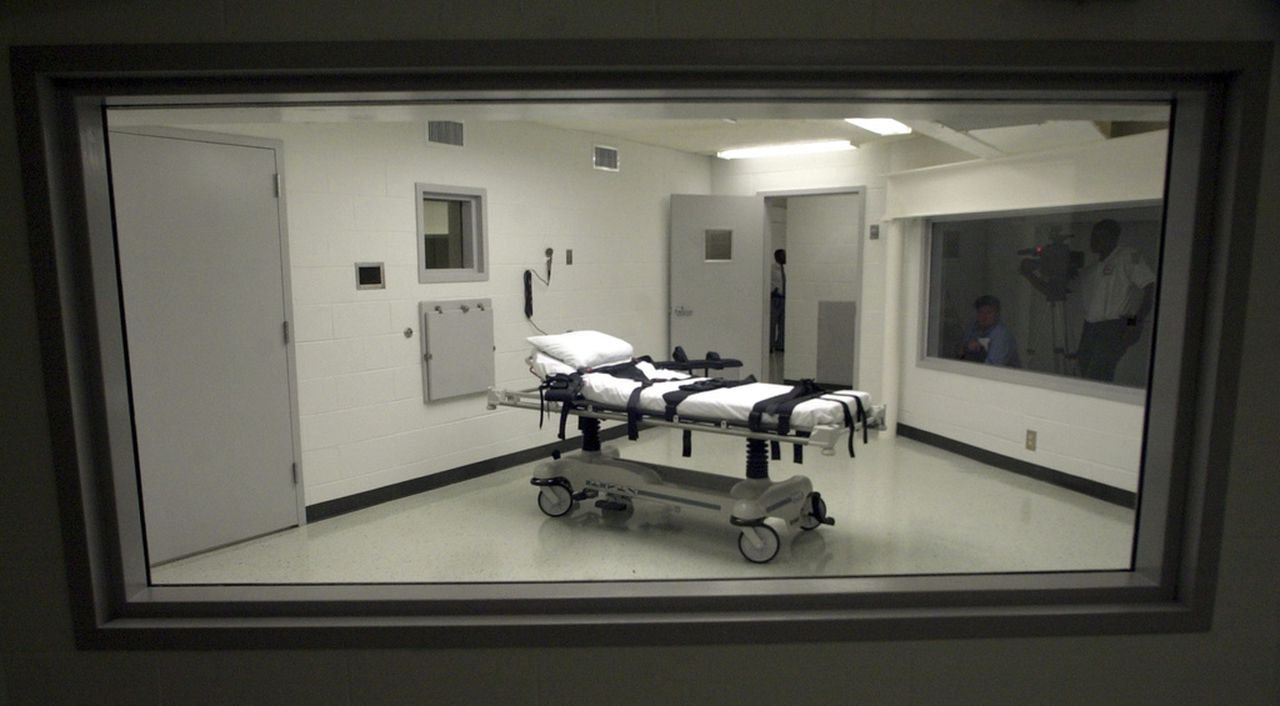Op-ed: Gov. Ivey and Alabama Legislature must act to save lives of Death Row inmates
This is a guest opinion column
On January 25, just 14 months after Alabama failed to execute Kenny Smith using lethal injection and left him with severe PTSD and physical scarring, the state used the untested nitrogen hypoxia protocol to execute him for a crime he committed over thirty-five years ago.
Kenny was strapped down, wrapped in a tight sheet, and his face was encased in a rubber and plastic “fire fighter” style mask that was tied over his head to the back of the gurney. For twenty-two minutes, Kenny writhed in agony as he was slowly suffocated to death using nitrogen gas, which was described by witnesses as horrific and inhumane. Kenny’s human right to life and his Eighth Amendment protection against cruel and unusual punishment were violated, and his experience was considered by United Nations experts to be tantamount to torture. Worst of all, if not for an outdated practice called judicial override, Kenny Smith would still be alive.
In 2017, Alabama became the last state in the nation to require death sentences to be decided alone by the jury when the legislature passed, and Governor Ivey signed into law, SB 16/HB 32. Before that law, a judge could single-handedly override the will of the jury and choose to give a convicted individual the death sentence. Unfortunately, the legislation was not retroactive, which has left thirty human beings stranded on death row even though their sentences would now be considered illegal. Among these people is Rocky Myers, a Black man with intellectual disabilities who has spent over thirty years on the row. Even though there was little evidence connecting Rocky to the crime, multiple irregularities during his proceedings — including reprehensible conduct by his lawyer that was later sanctioned by the Alabama State Bar — resulted in an unappealable conviction in the federal system that leaves him little hope for further adjudication through the courts.
As Alabama continues with executions, even for those who would not be on death row if they were sentenced today, it is critical that the Alabama legislature act to prevent this cruel, inhuman, and degrading punishment.
First, the Alabama legislature must pass HB27, which would retroactively reverse the sentences of those on death row through judicial override. The bill would not free those with a death sentence, but rather would reduce their charge to life without parole, providing those who maintain innocence time to seek further appeal. Importantly, HB27 would bring Alabama in line with the rest of the country, which has already declared judicial override illegitimate and reversed existing sentences. In passing this bill, Alabama would be upholding the legal principle recognized under international standards that those under sentence of death should benefit from retroactive leniency in the event of a change in the law after commission of the crime. Altogether, HB27 marks an incredibly important step in death penalty reform in Alabama that delivers on past promises and strengthens the legitimacy of our criminal justice system.
Second, Alabama must immediately halt the future use of the nitrogen hypoxia protocol. Lawyers for the state claimed that victims would be unconscious within seconds and would not be aware nor feel that they were dying. However, the witnesses to Kenny Smith’s execution said that he remained conscious for several minutes as he writhed and convulsed on the gurney, gasping for air and pulling on the restraints, shaking violently in prolonged agony. United Nations experts condemned the execution and stated that it amounted to “State-sponsored torture.” Accordingly, it is of utmost importance for those in power to immediately establish a moratorium on all executions as a critical step toward abolition and instead devote all resources to focus on alternatives that more effectively tackle crime at its roots and respect human rights.
Finally, Governor Kay Ivey must address the shortfalls of the 2017 law ending judicial override that she signed by commuting the sentences of Rocky and the 29 others who continue to be trapped on death row through judicial override.
We hope that Alabamans will be moved by the injustices of Kenny Smith’s and Rocky Myers’ cases to echo these calls for the Governor to commute these sentences, and for state legislators to pass HB27 to finally address the consequences of judicial override in Alabama death penalty cases.
TJ Riggs is a junior political science student at Samford University. He serves as Amnesty International’s Death Penalty Abolition Coordinator for the State of Alabama, where he heads up all of Amnesty’s abolition work including education, lobbying, activism, and community outreach. For more information on Riggs’ work in the State and ways you can join the fight, please reach out: [email protected]
Fred Shepherd is a Professor of Political Science at Samford University. Since 2009, he has served as Amnesty International’s Legislative Coordinator for the state of Alabama. His research interests include human rights, genocide, and Latin American politics. He is the faculty advisor for Samford University’s chapter of Amnesty International.
